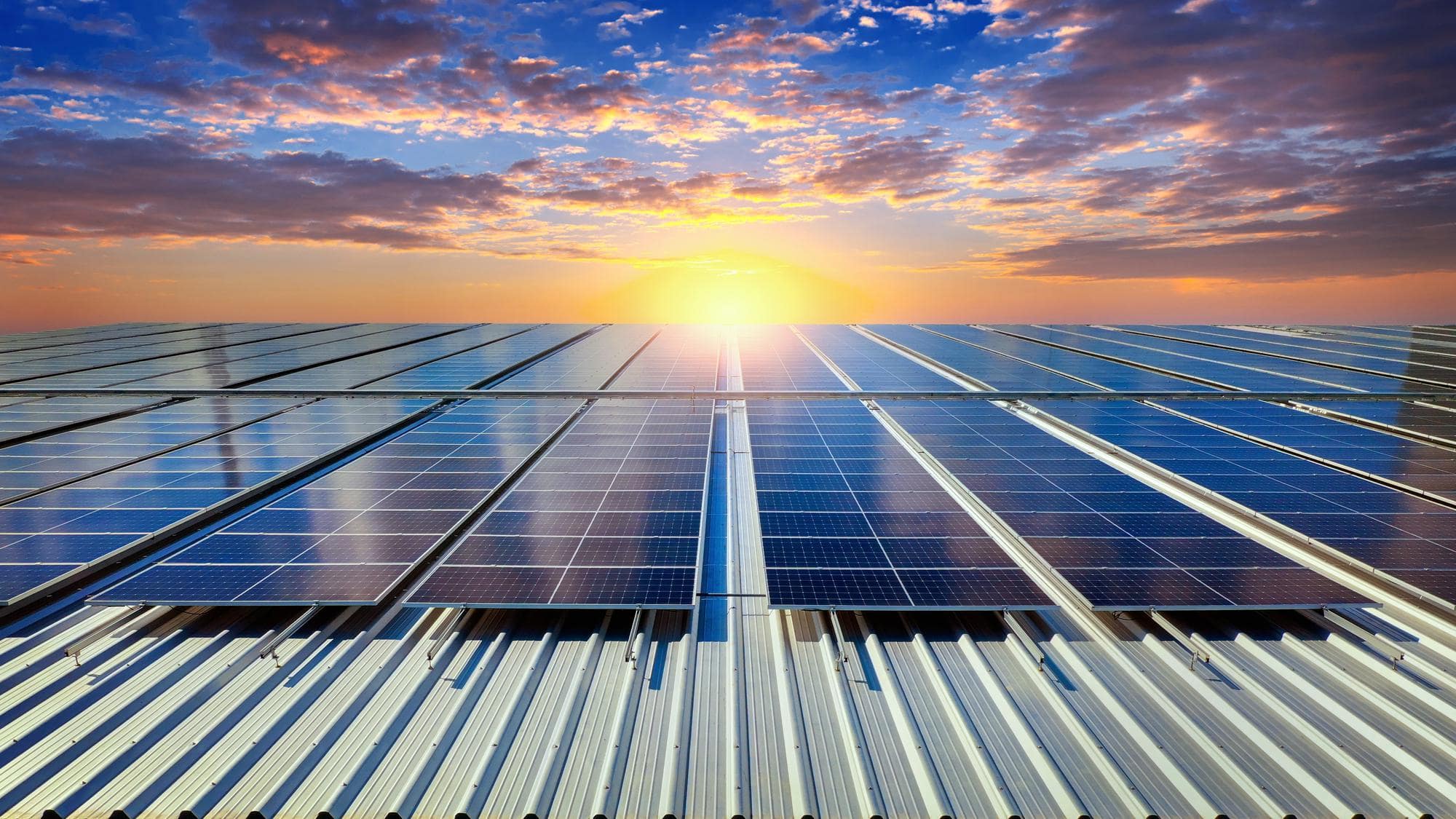Are you tired of relying on the National Grid and fluctuating energy prices? Have you ever dreamed of becoming energy independent, generating your green energy, and reducing your carbon footprint? Then, it’s time to consider an off-grid solar system UK. In this blog post, we will explore the ins and outs of off-grid solar systems, helping you switch to a more sustainable and eco-friendly energy solution in the UK.
Key Takeaways
- Understand the benefits of an off-grid solar system and generate green energy.
- Select components for maximum power generation, including battery storage and inverters to convert sunlight into electricity.
- Enjoy long-term savings with professional installation & support for a reliable energy solution.
Understanding Off-Grid Solar Systems
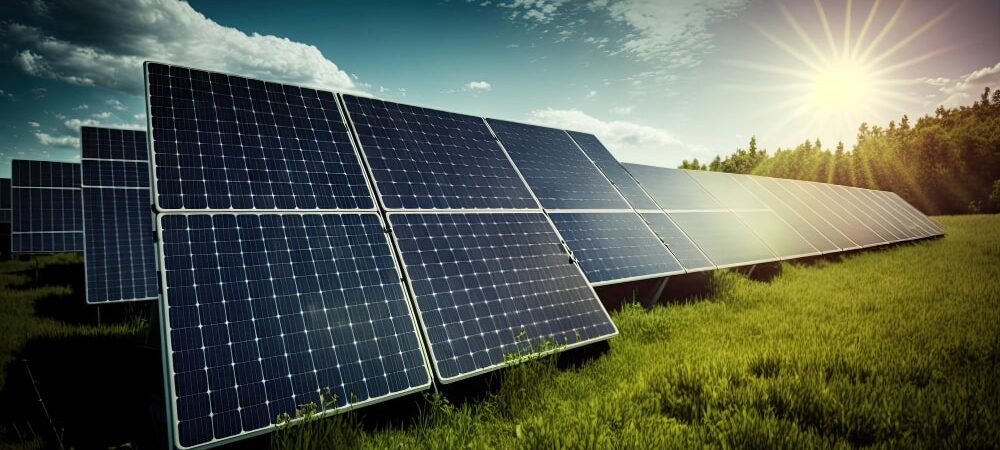
Off-grid solar systems offer energy autonomy, allowing you to generate and store renewable energy without relying on the National Grid or fossil fuels. They are an excellent option for a variety of applications, including:
- Holiday homes
- Garages
- Campsites
- Caravan homes
- Cabins
- A controller
- Offices
Especially in rural and remote areas.
Generating your energy helps combat the impact of escalating energy costs and grants you energy independence. Off-grid solar systems consist of several components, such as:
- Solar panels
- Panel mounts
- Batteries
- Power inverters
- Other necessary equipment for generating, storing, and delivering off-grid energy.
Generating Your Own Green Energy
A complete off-grid solar system allows for producing your green energy, which minimizes your carbon footprint and dependence on non-renewable energy sources. Here’s how it works:
- Solar panels capture sunlight and convert it into electricity.
- Batteries store the generated energy for periods when solar energy is not available.
- Off-grid solar systems can still generate power, even without direct sunlight. However, it is at a reduced level compared to direct sunlight exposure.
In such situations, you can also utilize a wind turbine or generator as a backup to generate more energy. Choosing the appropriate components tailored to your specific needs and location is key to maximizing power generation. This includes selecting the appropriate number and type of solar panels, batteries, and inverters for your off-grid solar system. Companies like Deege Solar offer carefully selected components in their off-grid solar packages to ensure maximum power generation and reliability.
Maximising Power Generation
For any off-grid solar system, it is critical to maximize power generation. Selecting components that suit your needs and location optimizes your system’s power output for maximum benefits.
For example, if you have a large roof, you can install more solar panels to generate more electricity. Some prominent solar panel brands featured in off-grid solar packages include Victron Energy. The type of battery and inverter you choose will also depend on your requirements and location.
Choosing the Right Off-Grid Solar System for Your Needs
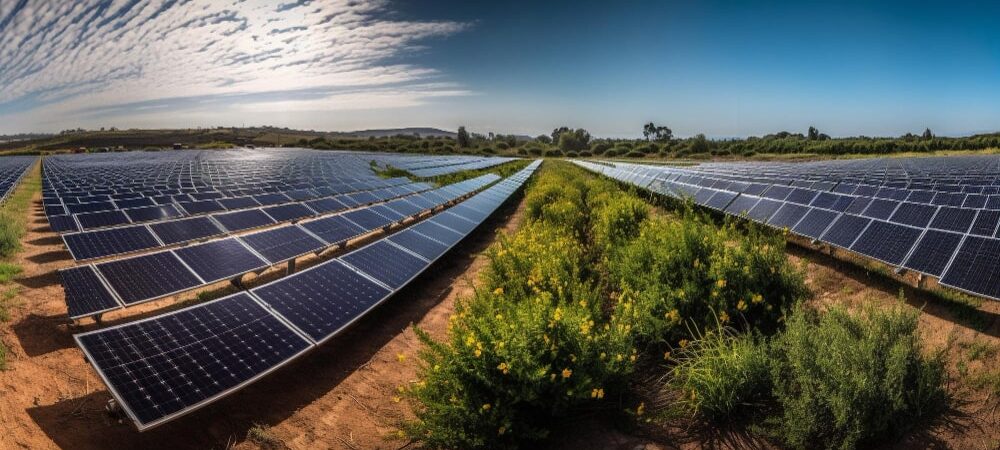
Determining the best off-grid solar system for your needs involves considering factors like:
- System size
- Solar panel type
- Battery storage options
- Inverter
- Mounting options
- Costs and savings tied to the system
Two primary off-grid solar system options exist complete off-grid solutions for remote locations and hybrid systems that supplement grid electricity.
Complete Off-Grid Solutions
A complete off-grid solution, often called the complete package, is a solar system that provides all the components necessary for self-sufficiency, making it ideal for remote locations or those wishing to achieve total energy independence. This type of system typically includes:
- Solar panels
- Battery storage system
- Inverter
- Mounting system
Investment in a comprehensive off-grid solution grants you full energy autonomy and the capacity to produce renewable energy. The cost of a complete off-grid solution varies depending on the size of the system and the components employed; however, considering the fluctuating energy prices, the savings can be considerable in the long run.
Hybrid Off-Grid Systems
Hybrid off-grid systems combine solar power generation with grid electricity, providing a green alternative while still having a grid connection as a backup. Entirely off-grid systems generally include all the components required to be independent of mains electricity. Similarly, these systems usually comprise additional equipment to connect them to a main power grid.
The benefits of hybrid off-grid systems include:
- Cost efficiency
- Flexibility
- Energy conservation
- Energy storage capacity
- Ease of maintenance
They offer a cost-effective, flexible, and maintenance-friendly alternative to fully off-grid systems while providing the advantages of grid connection as a backup.
Solar Panels: The Heart of Your Off-Grid System
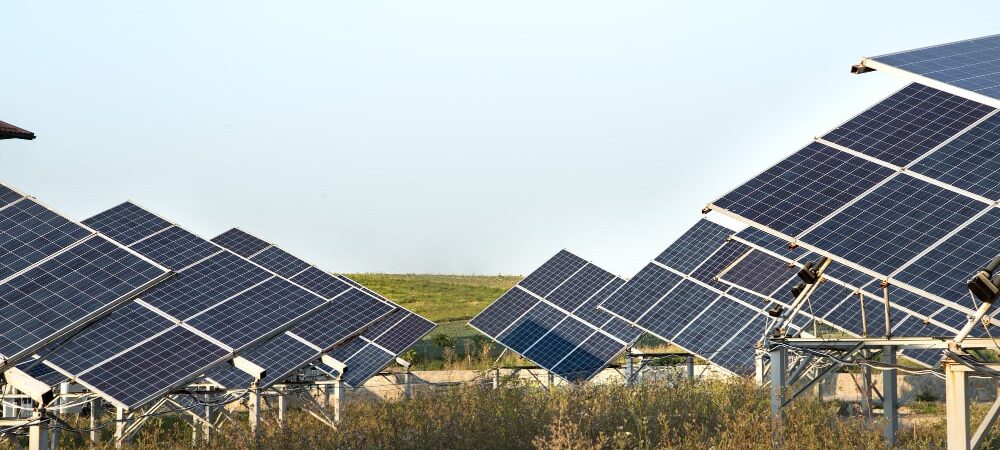
Solar panels are the primary component of off-grid systems, capturing sunlight and converting it into electricity. The number and type of solar panels you choose will depend on your energy needs and the size of your property. Factors such as:
- The amount of energy to be generated
- The size of the property
- The daily sunlight duration
- The roof angle in relation to the sun
- Various other aspects
These factors will determine the number of solar panels for your off-grid system.
Selecting the right number and type of panels ensures your system’s efficiency and helps maximize power generation. Considering your property’s size, angle, and potential restrictions assists in selecting solar panels that best meet your needs and deliver substantial benefits.
Battery Storage Options for Off-Grid Systems
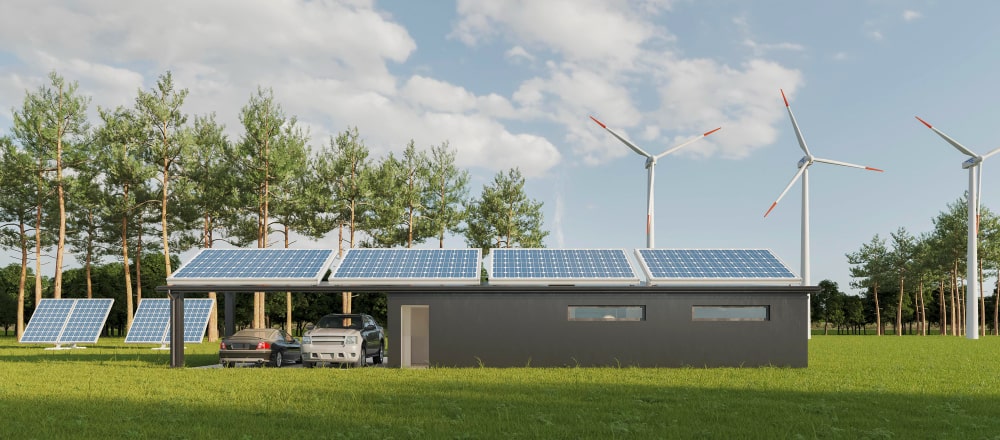
Battery storage is a crucial component of any off-grid solar system, as it allows you to store the energy generated by solar panels for periods when it is unavailable. There are several battery storage options available for off-grid systems, including:
- Lithium-ion batteries
- Lead-acid batteries
- Flow batteries
- Nickel-iron batteries
- Saltwater batteries
The right battery storage option guarantees the efficient operation of your off-grid solar system and caters to your energy needs.
Inverters: Converting Solar Energy to Usable Power
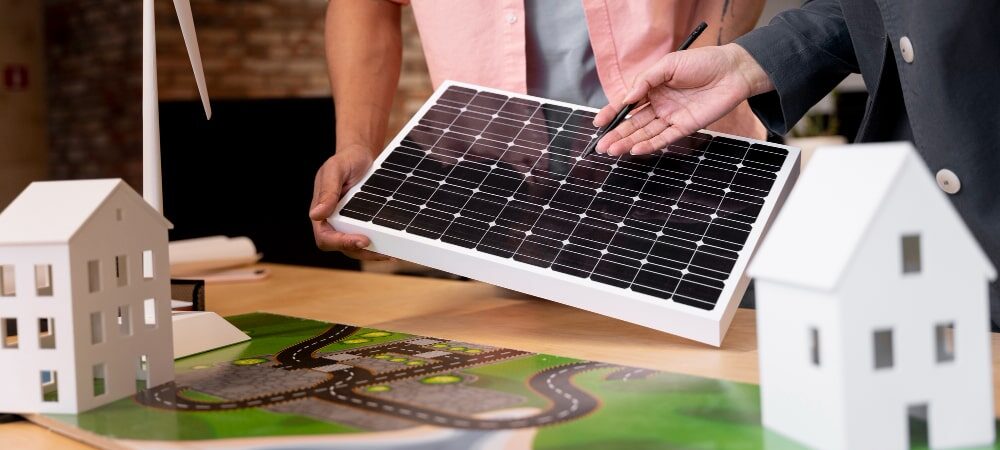
Inverters play a crucial role in off-grid solar systems by converting the solar energy generated by panels into usable power for your home or business. There are various types of inverters available, including:
- Square wave inverter
- Sine wave inverter
- Current source inverter
- Voltage source inverter
- Half bridge inverter
- Full bridge inverter
- String inverter
- Microinverter
- Power optimizer
The appropriate inverter selection is vital for your solar system’s efficient and reliable operation. It is imperative to choose an inverter that is compatible with your system and fulfils your power needs. You can select the best inverter for your off-grid solar system by considering efficiency, reliability, and compatibility.
Mounting Options: Roof vs Ground
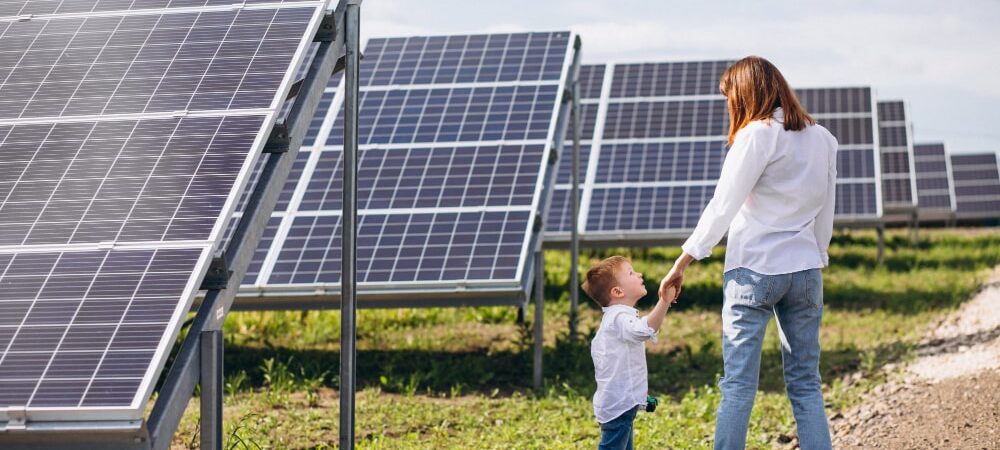
When mounting solar panels, there are two primary options: roof and ground mounts. The choice between these mounting options will depend on property size, angle, and any potential restrictions, such as listed building status. Roof mounting is the most visually appealing option, but it may not be suitable for all properties.
Ground mounting provides more control and flexibility, yet it may not be suitable for properties with limited space. Each mounting option offers advantages and disadvantages, ultimately depending on your property’s specific characteristics and needs.
Carefully considering these factors enables selecting the optimal mounting option for your off-grid solar system, ensuring maximum solar energy generation and system efficiency.
Costs and Savings of Off-Grid Solar Systems in the UK
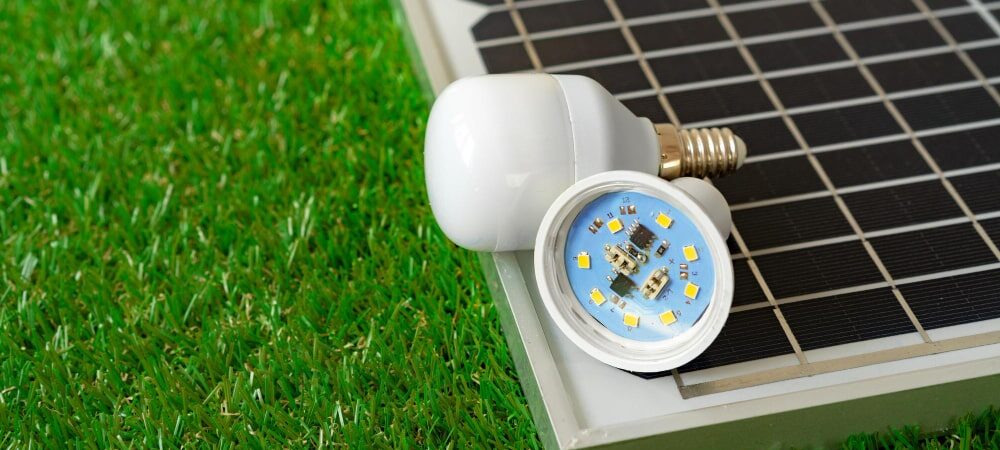
The cost of off-grid solar systems in the UK varies depending on the system size and components but can offer significant long-term savings and energy independence. A comprehensive off-grid power system for a three-bedroom family home costs between £15,000 and £28,000, including installation, while a smaller 2.2kW option could cost approximately £12,000.
Despite the initial investment, an off-grid solar system’s potential long-term savings and energy independence can make the investment worthwhile. The cost of an off-grid solar system can be recouped in as little as ten years, offering significant savings on energy bills and contributing to a greener, more sustainable future.
Professional Installation and Support
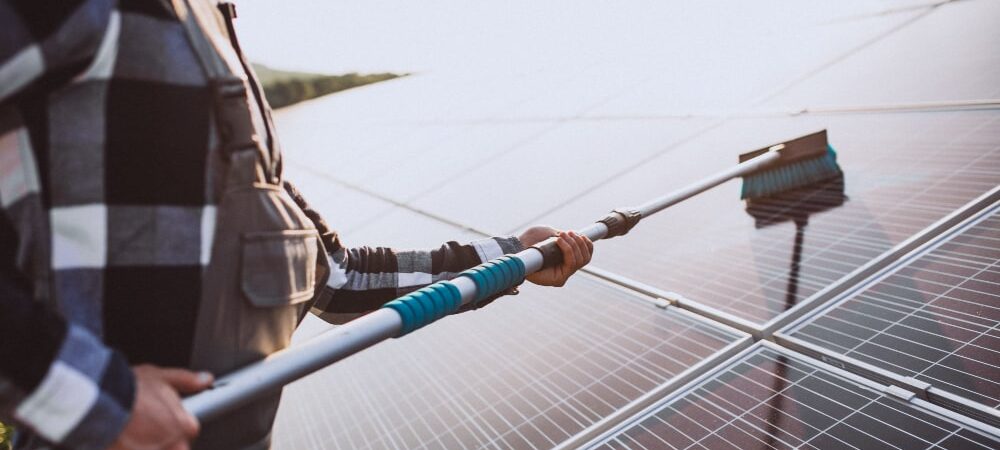
Professional installation and support are essential for proper setup and ongoing maintenance of your off-grid solar system. Expert guidance is available from Sunstore Solar, Deege Solar, and Off Grid Engineering, ensuring your system is designed and installed to meet your specific needs and requirements.
Opting for professional installation and support guarantees your off-grid solar system’s correct and efficient setup, providing peace of mind and a dependable energy solution. These services also offer expert advice on system design, installation, and maintenance, helping you make the most of your investment in off-grid solar technology.
Summary
In conclusion, off-grid solar systems offer a sustainable, eco-friendly, and energy-independent solution for those looking to reduce their carbon footprint and reliance on non-renewable energy sources. You can create a highly efficient off-grid solar system tailored to your specific needs and location by carefully selecting the right components, mounting options, and professional installation and support. With the potential for significant long-term savings and a positive environmental impact, there has never been a better time to switch to off-grid solar power.
Frequently Asked Questions
How many solar panels does it take to run a house off the grid?
For an average UK home running off the grid, you’ll need approximately 4.4kw of solar panel output, which translates to sixty 250W solar panels or seventy-five 200W solar panels.
Can you go off-grid with solar in the UK?
Yes, you can go off-grid with solar in the UK – get a battery with 12.8 kWh of storage for optimal results.
How much does an off-grid solar system cost?
On average, a complete off-grid solar system for a three-bedroom family home in the UK costs between £15,000 and £28,000, including fitting. A smaller 2.2kw option could cost around £12,000.
What size solar system do I need to run off-grid?
For a 3-bedroom home running off-grid, you would need around 4.4kw of solar panel output, which equates to approximately 35 200-watt panels or 20 350-watt panels. The specific size of the system will depend on your energy requirements and conditions, so it is best to consult a professional to get the most suitable solution.
What is the difference between a complete and hybrid off-grid solution?
A complete off-grid solution is self-sufficient perfect for remote locations. It provides total energy independence, whereas a hybrid off-grid system combines solar power generation with grid electricity, offering green power plus the reliability of a backup connection to the grid.
